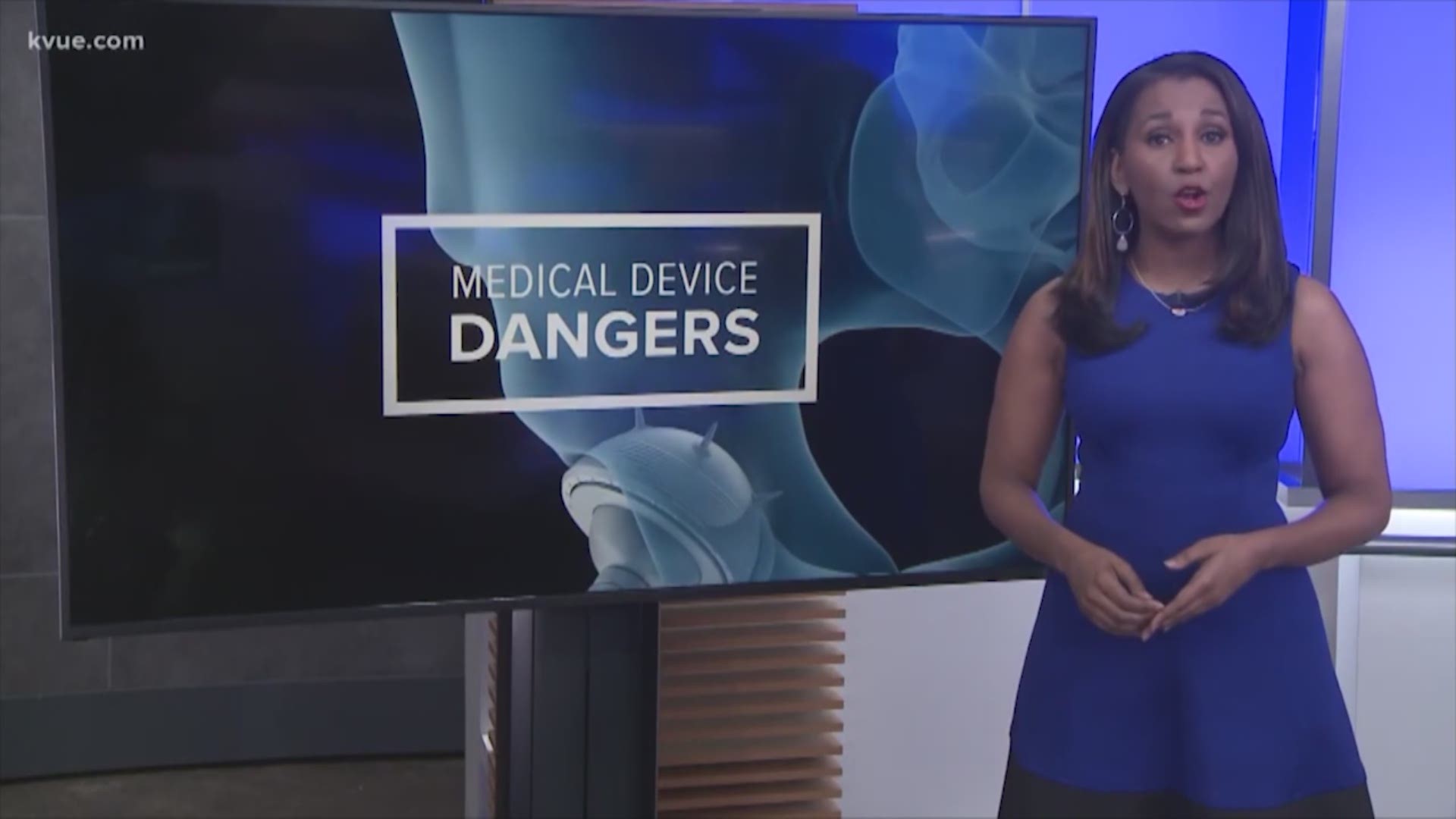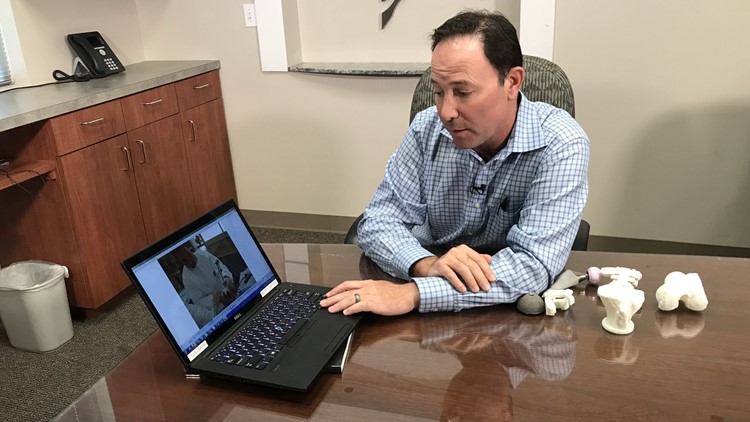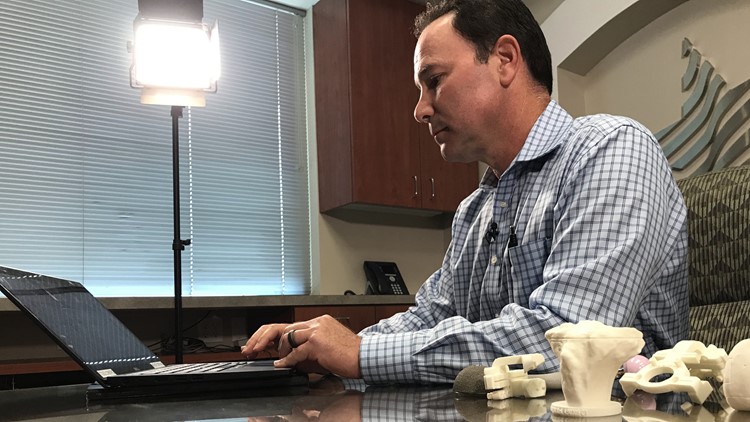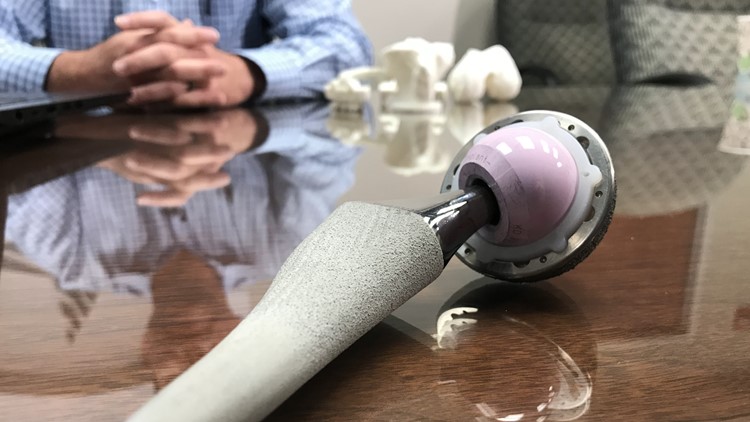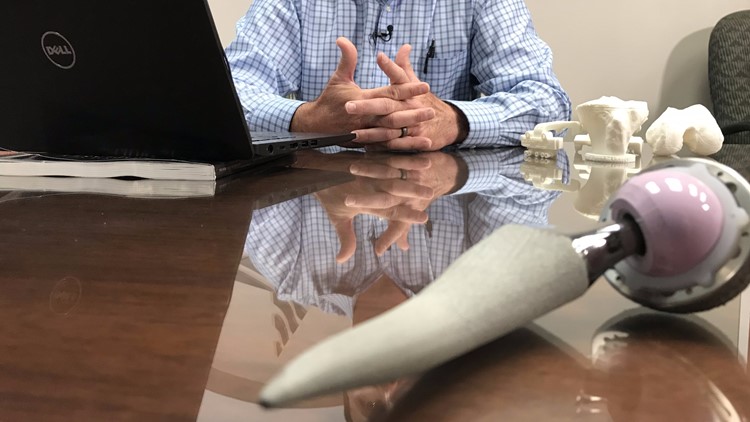AUSTIN, Texas — More than a million doctors received some kind of payment from a pharmaceutical or medical device company last year. And, as the KVUE Defenders discovered, it is something you should be asking your doctor about.
Like a game of cards, medical devices carry their share of risk. There's a chance you'll feel better, but they may also make you feel worse.
Frances Scott knew double hip replacement surgery was unusual for someone her age, but she never imagined her outcome.
“I knew they were bad from probably two months after I got them,” said Scott.
Unable to walk or stand all day, get back to work and struggling with her memory, she finally got tested for metal poisoning.
“It came back so high that had I been poisoned by it. OSHA would have come in and shut down my workplace, but because I was being exposed to a device that was implanted in my body, what do we do about that?" questioned Scott.
It took her years to find a doctor to remove them. Along the way, finding information she wishes she'd known before her surgery.
“There was no way to find out if he was in bed with the companies, that he was getting paid to consult with these companies. To this day, I don’t know if he was one of those ones on payroll,” said Scott.
“To this day, I couldn't tell you if [her surgeon] really thought the hip he installed in her was the best,” said Skip, Scott’s husband.
It's not just hips, but mesh, breast implants, dental implants and more. Back when Frances had her surgery, there was no way to find out if doctors were getting paid by medical manufacturers.
RELATED:
Doctors required to report kickbacks
Now you can. Since 2014, doctors and surgeons have been required to report kickbacks from medical device and pharmaceutical companies.
ProPublica publishes those reports here.
They show companies paid doctors more than $12 billion in 2018. More than 2,500 physicians received at least $500,000 in the past five years.
“Physicians aren't implicitly biased just because of the dollars,” said Dr. Tyler Goldberg, an Austin orthopedic surgeon who is among the highest-paid in the Austin area.
A board-certified surgeon for 14 years, Dr. Goldberg also teaches, researches and designs medical devices.
RELATED:
“This (hip cup he designed) has been put in 31,000 times around the world,” said Dr. Goldberg.
His cutting-edge technology has helped patients like Jim Warren walk again.
“Now I'm pain-free,” said Warren.
He had to have both hips and a knee replaced. For him, the amount of money Dr. Goldberg makes on the side is a non-issue.
“There are rewards for being talented like that, coming up with new designs, new devices – I don't have a problem with that,” Warren said.
“How much a physician would make is a reflection of how hard they work, how much time they spend away from their practice and, in the royalty section, how successful their product is,” said Dr. Goldberg.
PHOTOS: Defenders discuss doctor/manufacturer payouts
"I make no money or no royalties from anything I put in, anything the hospital where I work puts in or any of my partners puts in," said Dr. Goldberg.
Doctors like general surgeon Vineet Choudhry, M.D. admit there is pressure from companies to use their devices.
“I get pressure all the time in all different directions to use certain products, but again it's up to us to use our judgment, to know if and when it's appropriate to do something,” said Dr. Choudhry.
When asked if receiving money from a medical company clouds their judgment, doctors had strong opinions.
“The money aspect, absolutely not,” said Dr. Goldberg. “The things I design I'm, of course, biased. I use the things I design. They work well for me. I know them intimately. I know the way they work, their good, their bad. I'm, of course, biased in the things I use, but never once by a dollar amount associated with that.”
Federal lawmakers weigh in
It is something that is getting the attention of federal lawmakers.
“I’d want to look at that and, if I saw that my physician was getting hundreds of thousands of dollars, in some cases millions of dollars from companies, I’d probably want a second opinion,” Rep. Lloyd Doggett said.
Doggett is co-sponsoring two bills. The Medical Device Guardian Act would require doctors to report problems with medical devices to the FDA. Right now, there is no such requirement.
The Medical Device Safety Act would mandate a medical device registry.
“That’s the goal of the legislation that I’m backing, is trying to get physicians around the country to report this in a database that everyone can understand so that you have an informed consumer,” he said.
RELATED:
The business of medicine is something Frances Scott wishes she had known more about before getting metal-on-metal hips.
“This whole thing really saddens me,” said Scott. “There are plenty of doctors who do not take these lucrative arrangements, but some do."
Nearly 10 years later, even with new hips, Scott is forced to use a walker most days.
“I wouldn't want anyone to hurt like I've hurt,” she said.
How to check how much your doctor makes
You can check to see if your doctor receives any money from pharmaceutical or medical device companies here. You can also search back as far as 2009.
Since the KVUE Defenders have been covering these issues, a handful of devices have been recalled, about a half dozen hearings have been held at the FDA, and the agency has released millions of previously hidden records.
The FDA has another scheduled hearing on metal devices and the effects people have suffered on Nov. 13. Scott will be speaking on behalf of injured patients.
PEOPLE ARE ALSO READING:


